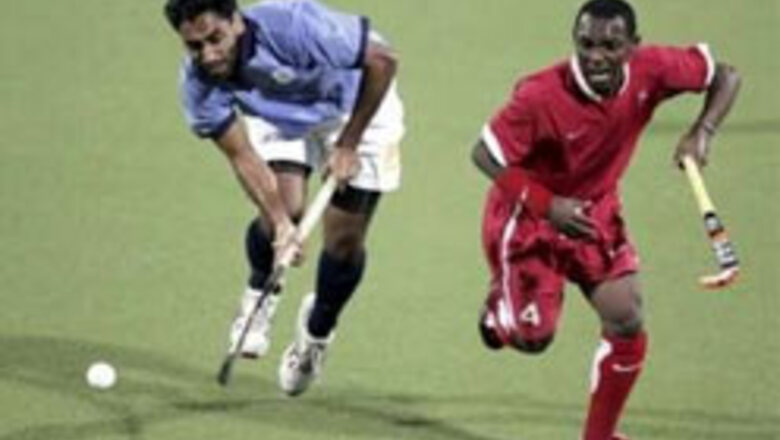
views
Doha: Once again India's medal take at the Asian Games has been dwarfed by China. Suresh Kalmadi's job is to ensure that situation changes.
As president of the Indian Olympic Association, Kalmadi helps oversee a multimillion dollar programme aimed at overhauling India's sports development and giving China, one of the world's leading sporting nations and the only one with a bigger population, a run for its money.
"It's not just about participation anymore," Kalmadi said in Doha, Qatar, on the fringes of the Asian Games, the continent's premier sporting event.
"It's about contending for medals."
Kalmadi has his work cut out for him.
While often mentioned alongside China as a rising Asian giant, India is nowhere close in sporting terms.
By Thursday, the second to last day of competition, China had 147 Asian Games golds to just nine for India.
More telling, Indian athletes competed in only about half of the 39 events at Doha, compared with 37 by China.
In a particularly bitter defeat, eight-time Olympic champion India failed to win a medal in Asian Games men's hockey - after its first ever loss to China. Making it worse, China reached the final for the first time.
The results are striking given that both India and China are huge countries with billion-plus populations, stable political systems and booming economies.
Yet, they also exhibit strong contrasts, mainly between India's freewheeling democracy and China's marriage of authoritarian one-party communist politics and a thriving market economy.
China embraced international athletic achievement as an expression of its rising national strength a long time ago.
PAGE_BREAK
India, at least a decade behind China in economic development, for a long time paid that theory little regard.
Cricket, the national obsession, is a notable exception although the sport isn't featured at either the Olympics or the Asian Games.
"When we first participated in the Asian Games in 1974, we performed badly because of the weak state of the nation as a whole," the deputy head of the Chinese delegation, Duan Shijie, said.
Market-oriented economic policies adopted in the late 1970s have produced "so many high performing athletes," Duan said.
India's attitude, on the other hand, reflected attempts to share resources equitably among a largely poor population, along with fractious politics that made it difficult to unite behind a common agenda.
Indian society, meanwhile, tended to see sports as the preserve of the upper classes, reducing the "catchment area" for new talent, professor at Canada's Kingston University Jayant Lele said.
Lele has studied Chinese and Indian sports culture.
"The sports culture in China in the same period was far more egalitarian," Lele said.
As a result, China has topped the medal tallies at every edition of the Asian Games since 1982 while India, which hosted the first Asian Games in 1951, has stagnated.
While India is just getting fired up, China is aiming to overtake the United States in the medal tally at the Beijing Olympics in 2008.
"There is a single-mindedness to (China's) mission that India can reasonably imitate," columnist Rohit Brijnath wrote in The Hindu newspaper earlier this month, commenting on China's Olympic preparations.
"Such basic long-term planning appears foreign to the Indian experience."
Overcoming such perceptions is key to Kalmadi's mission.
PAGE_BREAK
India's development programme is linked to its hosting of the 2010 Commonwealth Games, which bring together athletes from 71 nations and territories that once formed the British Empire.
The programme targets recruitment, training and facilities, while engaging the private sector and international stars such as women's tennis ace Sania Mirza.
Along with better infrastructure, officials have called for greater application of sports science and more regular monitoring of athletes' progress.
The programme also extends to many sports in which India does not currently feature in international competition.
While India can't match China's 3,000 state-supported sports academies, the two are exchanging experiences and last year signed a sports protocol formalising such ties.
"The government systems are very different, but there's no harm learning from (China)," Indian Olympic Committee member Ashook Mattoo said.
Indian athletes say they are excited by the new prospects.
"There is a lot of work going on now," said Indian discus thrower Krishna Punia, who finished third in her event behind two Chinese athletes in Doha.
"We're going to be training and preparing in a completely new way."




















Comments
0 comment